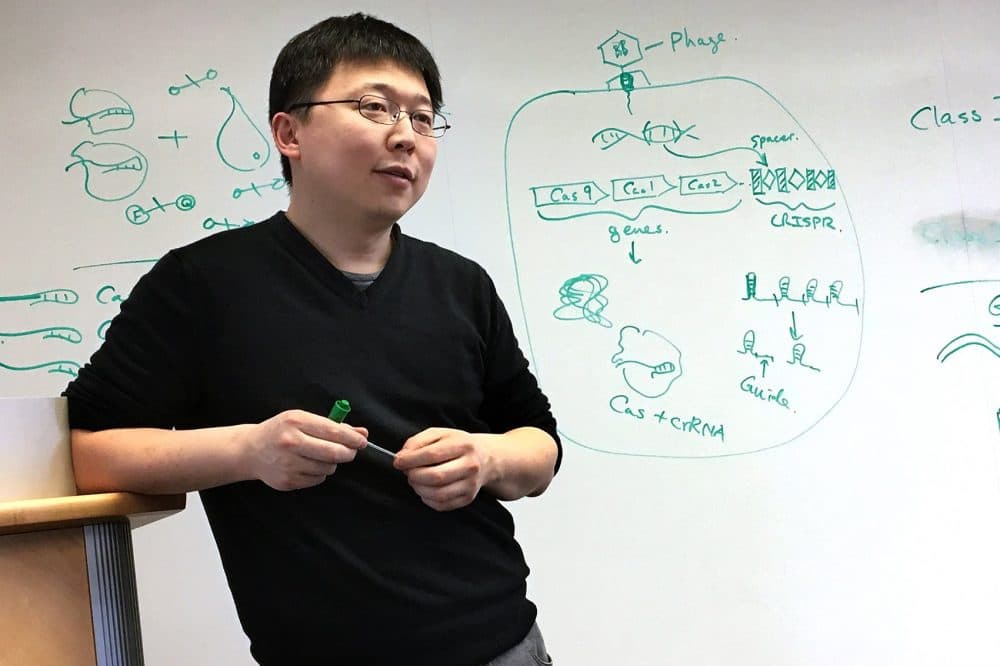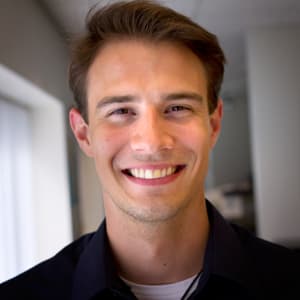Advertisement
Gene Editing Pioneer Speaks Out Against Genetic Editing Of Babies In China
Resume
A Broad Institute researcher who is one of the pioneers of the CRISPR gene editing technique is speaking out, upon news that a scientist in China claims to have created the world's first genetically-modified babies.
Feng Zhang is a biological engineer at the Broad Institute and a professor of neuroscience at MIT. He is one of the developers of CRISPR gene editing, and he has major concerns about using the technique on human embryos at this point.
WBUR's Jack Lepiarz spoke with Zhang on the phone from Hong Kong, where he is attending the international summit on human genome editing. News of the apparent gene editing development broke just before the summit got underway. The Chinese scientists, He Jiankui, is set to speak at the summit.
Jiankui claims he used gene editing on twin girls' embryos to knock out a gene that allows HIV to enter cells — the goal being to prevent the girls from ever being infected with the HIV virus.
The twins' father is HIV-positive, but a different technique that involves washing sperm to separate it from the HIV-infected semen was reportedly used to prevent transmission of the virus to the embryos.
Zhang says gene editing is still fairly new, with technical challenges and ethical questions that still need to be addressed.
"From a technical perspective, the gene editing system is known to be able to make unwanted edits, and these are called 'off-targets'," Zhang explains. "So even if we're trying to fix Gene A, for a fraction of the time it's possible that they may edit in locations B, C and D, and maybe even more. And because we don't know what some of these unwanted changes — how they may affect the way the body works — there's very high risks for going forward to use this in the embryo."
Zhang says causing a genetic alteration may have additional unintended consequences — for example, in this instance, causing increased likelihood of contracting West Nile Virus or dying from the flu. And these genetic alterations will be carried down through generations, he says.
Interview Highlights:
"If the gene is removed, it's significantly less likely that the person will get infected by HIV, but then it also makes it much more likely for the person to get West Nile Virus or to suffer a fatality in the case of flu infection. There are other mutations, too. For example, in the gene called PCSK9, where in some individuals it reduces cholesterol, but sometimes it's also been shown that it can increase risk for diabetes.
"If the enzyme, in addition to doing what you want it to do, just happens to also modify a cancer-related gene, then you can see an increased risk for a tumor. And so because of both of these types of unwanted side effects, the technology is really not ready to be deployed.
"In the future, for some disease where we know the actual causative mutation, then I can imagine people would want to go into the embryo and correct those mutations.
"In the very near term, what we'll see is that the technology will be developed for applications in somatic cells for treating diseases [...] and not doing it in a way that the changes will get passed to subsequent generations. And as we develop technology in this fashion, we're going to be learning a lot more safety, efficacy and also the best ways to apply the technology. And that will require many years of working with the tech to understand its limitations and strengths. At that point, we might be ready to apply it to embryos."
This segment aired on November 26, 2018.

